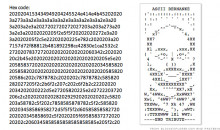California sends a cease and desist order to the Bitcoin Foundation
California's Department of Financial Institutions has issued a cease and desist letter to the Bitcoin Foundation for "allegedly engaging in the business of money transmission without a license or proper authorization," according to Forbes. The news comes after Bitcoin held its "Future of Payments" conference in San Jose last month. (The license information is available on CA.gov and Forbes placed the cease and desist letter on Scribd.)











































































